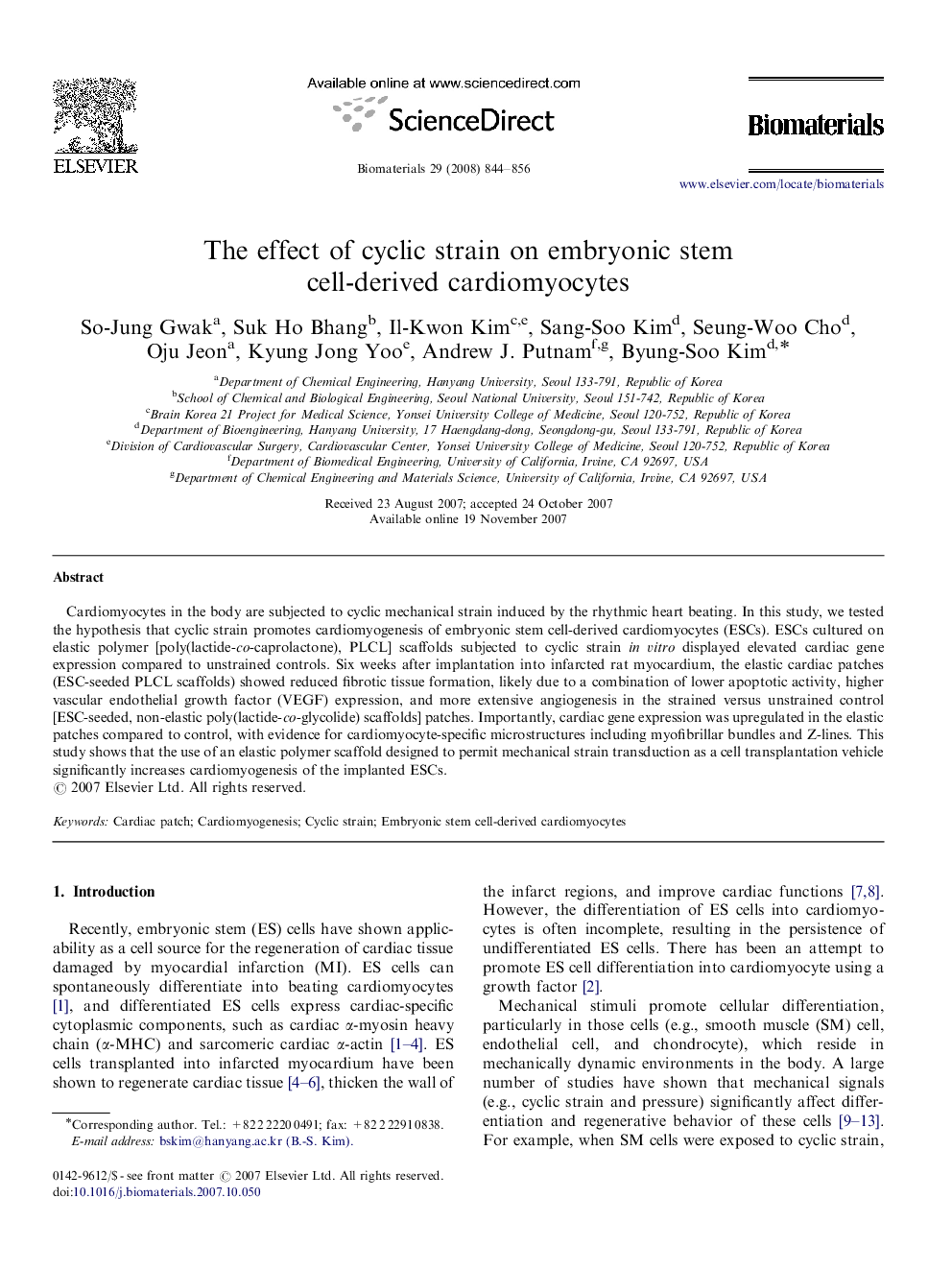| Article ID | Journal | Published Year | Pages | File Type |
|---|---|---|---|---|
| 9959 | Biomaterials | 2008 | 13 Pages |
Cardiomyocytes in the body are subjected to cyclic mechanical strain induced by the rhythmic heart beating. In this study, we tested the hypothesis that cyclic strain promotes cardiomyogenesis of embryonic stem cell-derived cardiomyocytes (ESCs). ESCs cultured on elastic polymer [poly(lactide-co-caprolactone), PLCL] scaffolds subjected to cyclic strain in vitro displayed elevated cardiac gene expression compared to unstrained controls. Six weeks after implantation into infarcted rat myocardium, the elastic cardiac patches (ESC-seeded PLCL scaffolds) showed reduced fibrotic tissue formation, likely due to a combination of lower apoptotic activity, higher vascular endothelial growth factor (VEGF) expression, and more extensive angiogenesis in the strained versus unstrained control [ESC-seeded, non-elastic poly(lactide-co-glycolide) scaffolds] patches. Importantly, cardiac gene expression was upregulated in the elastic patches compared to control, with evidence for cardiomyocyte-specific microstructures including myofibrillar bundles and Z-lines. This study shows that the use of an elastic polymer scaffold designed to permit mechanical strain transduction as a cell transplantation vehicle significantly increases cardiomyogenesis of the implanted ESCs.
